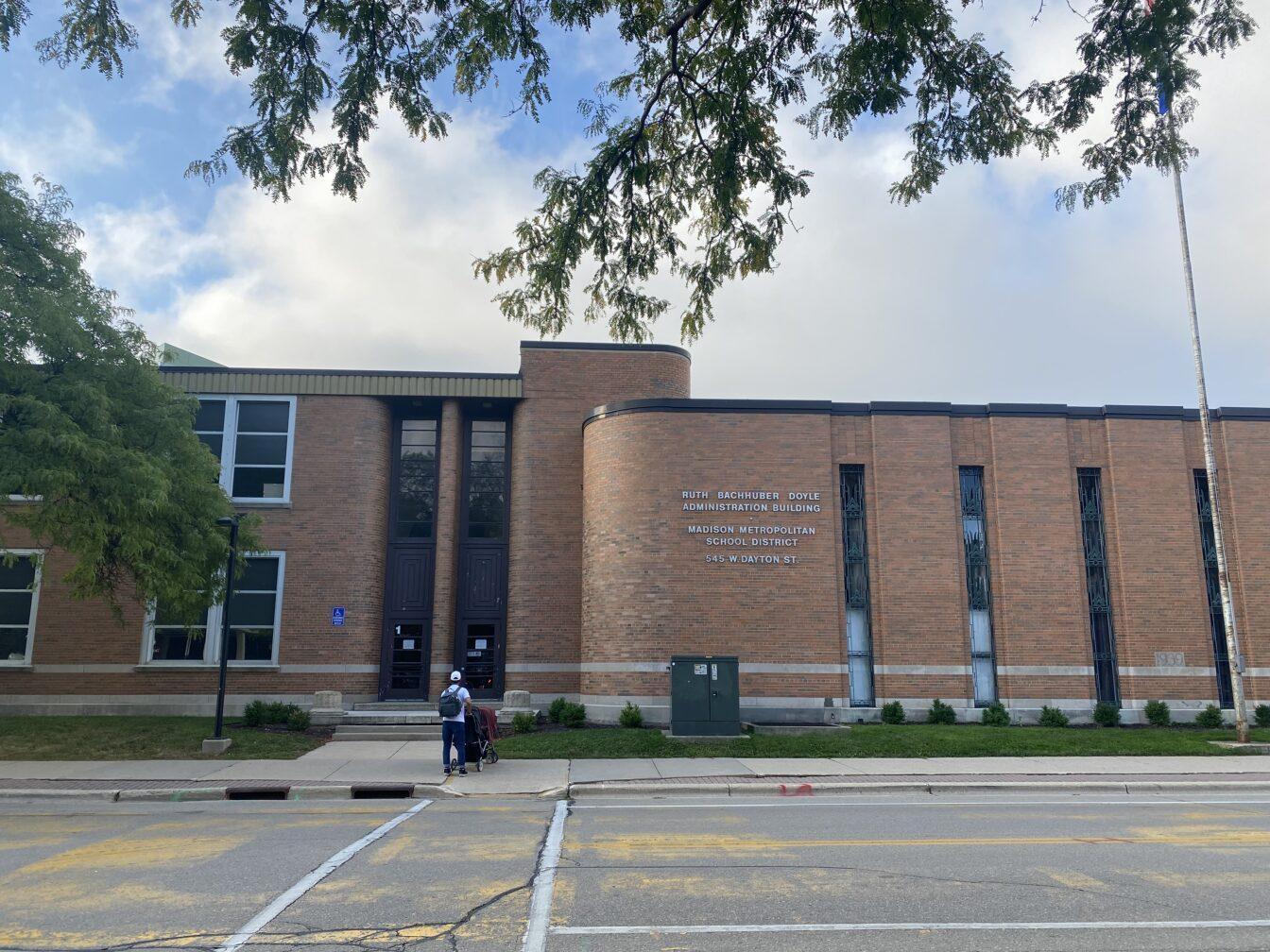Wisconsin has the highest rate of kindergarten vaccine exemptions in the Midwest at a staggering 6.7% exemption rate, according to Axios. Vaccine avoidance, especially related to children, is no new fad and is usually related to misinformation and fear mongering amongst parents.
Vaccinations are important for not only children, but all people. The spreading of vaccine misinformation is incredibly dangerous, and must be stopped to ensure both children and adults get vaccinated.
For a long time, many people have believed that vaccines cause autism in children. This movement began in 1998 when physician Andrew Wakefield published “The Lancet” which claimed that there was a connection between autism and the measles, mumps and rubella (MMR) vaccine.
Republican attack on UW System DEI initiatives puts students in danger
Soon after the publication of “The Lancet,” other studies were published which refuted the connection between the MMR vaccine and autism. Though Wakefield’s study incorrectly connected the MMR vaccine to autism, many still look to this finding as a precedent for leaving their children unvaccinated.
But, there are many reasons Wisconsin parents chose to not vaccinate their children, and even themselves, that aren’t wholly related to the autism myth.
First, misinformation related to the COVID-19 vaccine is one of main suspected causes of vaccine hesitancy in Wisconsin, according to The Cap Times. It was not long ago when some Americans were taking animal dewormer as a treatment for COVID-19 because they didn’t trust the vaccines or the doctors telling them to take it.
Corporate Pride collections represent performative LGBTQ+ activism
Throughout the pandemic, Wisconsinites were incredibly hesitant to receive the COVID-19 vaccine. Only 47% of Wisconsinites were vaccinated in May of 2021 when the pandemic was still raging. Some citizens even protested on the steps of the state capitol in August 2021 to rally against vaccine mandates.
Though the COVID-19 vaccine is not required for young children in the U.S., the skepticism around the COVID-19 vaccine and boosters has led to further skepticism around other vaccines for children, according to Axios.
Another reason parents may choose not to vaccinate their children is because many severe illnesses like polio are largely eradicated in the United States by vaccines, according to Our World in Data. When parents don’t see the real dangers of an illness, they don’t find it as necessary to vaccinate their children.
It is possible this high kindergarten vaccination exemption rate may just be a result of delays caused by the pandemic and staffing issues amongst the healthcare industry, according to The Cap Times. But University of Wisconsin professor Dominique Brossard points to distrust in government backed organizations and misinformation as some of the driving factors.
Parents do not have bad intentions when preventing their child from getting vaccinated, they simply want to do what they believe is safe for their child. But, by not vaccinating their children, Wisconsin parents are putting their own kindergartener and other kindergarteners at risk.
Vaccinations prevent the spread of illnesses, and for kindergarteners in close proximity in a classroom for eight hours a day, this can mean the spread of dangerous illnesses like measles or polio if some students are not vaccinated, according to Axios.
In fact, studies are already beginning to show that unvaccinated children have an increased risk of infection from vaccine preventable diseases.
Vaccine exempt children are 22.2 times more likely to catch the measles and 5.9 times more likely to catch whooping cough than vaccinated children, according to The Journal of the American Medical Association.
Diversity needed to further conservation field
According to the CDC, unvaccinated people also have the potential to transmit diseases to people who are too young to get vaccines, like infants, individuals with weak immune systems and health care workers. This means those unvaccinated kindergarteners can not only endanger their classmates, but also their younger siblings, teachers and doctors.
Schools are responsible to keep students safe, but when vaccine exemptions can be given out for medical and non-medical reasons, there is little they can do to force parents to vaccinate their children.
Thus, parents must listen to accepted scientific research and vaccinate their kindergarten-aged children. Time and time again, scientific evidence supports the safety of vaccinations as a way to prevent the spread of disease. Increasingly, data shows that vaccines have more positive than negative effects, according to the American Association for the Advancement of Science.
The vast spread of vaccine misinformation during the COVID-19 pandemic demonstrates the long-term impacts of the “The Lancet.” But evidence continues to show the COVID-19 vaccine is safe — despite many misconceptions that suggest otherwise.
In times like these, parents need to look toward professionals — those who support scientific research — to improve public health outcomes.
Sammie Garrity ([email protected]) is a freshman studying journalism and political science.














